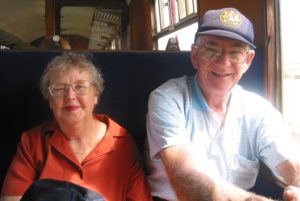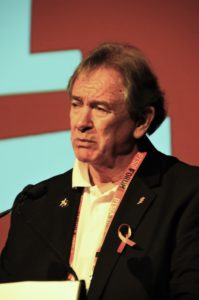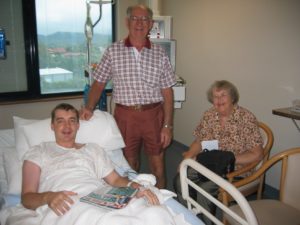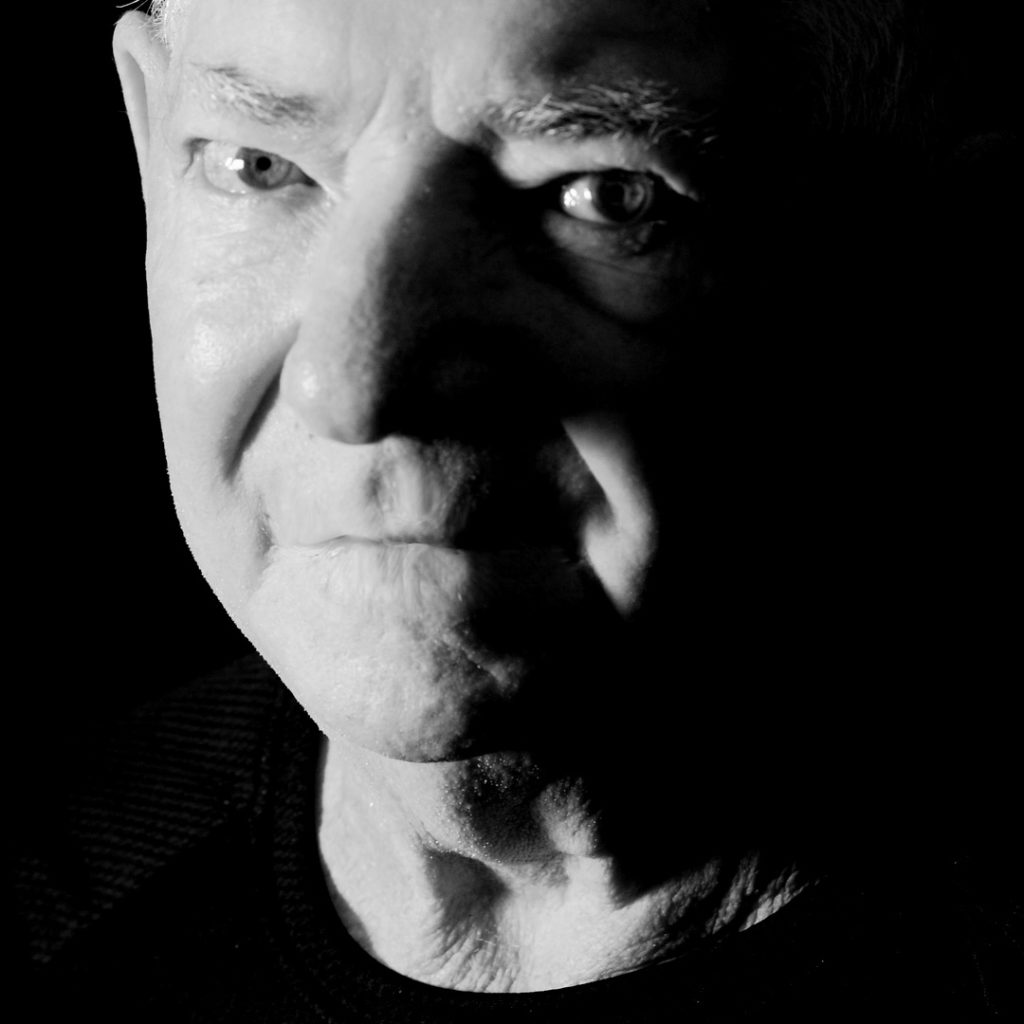
Alan and Eileen Green, retired, holidaying in Thailand before the shooting rocked their world
I know from experience, the secondary causalities of PTSD are the sufferer’s loved ones – wife, partner, children, siblings, parents – the ones who see the effects of PTSD up close and personal. The depression, anger, anxiety, hyperarousal, dreams, flashbacks, withdrawal and massive personality changes.
One of my first memories of what I was going through affecting my parents, was in the first week after being released from hospital following the shooting.
I was having a nightmare and my father tried to wake me. As soon as he touched me I lashed out kicking at him repeatedly until I woke and realised where I was!
Love ones often feel helpless, are often overlooked by support services (although this is improving) and suffer in silence. For years I underwent intrusive operations to reconstruct my shattered mouth from that first bullet, with each procedure re-igniting the full fury of PTSD.
This is the damage the first bullet to my face inflicted…
As all loving parents know, what affects your children, affects you. Things became so bad in the early years after the shooting, my father suffered severe depression. I was being treated by an experienced psychiatrist who had children of his own. He had more than an inkling of what my parents were going through. When I shared my concerns about my father’s declining mental health, even though he was not paid for it, the psychiatrist volunteered to see and treat my father for 15 minutes after each session that I had with him. My dad started a course of anti-depressants, which combined with talking about his feelings and emotions, and the wise counsel of this generous psychiatrist, helped in time to relieve his depression. This enabled him to ‘keep going’ and along with mum continue to be a bulwark of support for me.

Tony Dell
Despite his waning years, my dad was once again there for me and agreed to participate in the music film clip. However this time, he was not there solely for me. Anyone who knows my dad, knows his gentle kind and empathic nature – if he can help someone out, he’s the first to show up! Alan participated to help raise awareness of PTSD and in his own small way, try to make the road for the condition’s suffers and their loved ones, a little bit easier than we have had to traverse together.
Hint: Dad appears between 3 and 4 minutes.
The ‘Stand Tall’ music film clip will give you a true glimpse of what it is like living with PTSD and help you understand and better support those affected by the condition.
Please watch the film clip’s scenes and listen carefully to Tony’s own words based on his personal experiences.
More than 15 million Australians are affected by trauma and it is estimated that between 5 and 10 percent of the population will suffer PTSD at some point in their life (Source: Phoenix Australia).
If you wish to…
- learn more
- receive help for suffers and supporters
- support research for effective treatments
Please visit…
- Stand Tall for PTS
- Phoenix Australia – Centre for Posttraumatic Mental Health
- Gallipoli Medical Research Foundation

2003: Alan and Eileen supporting Daryl in hospital during one of his numerous operations




